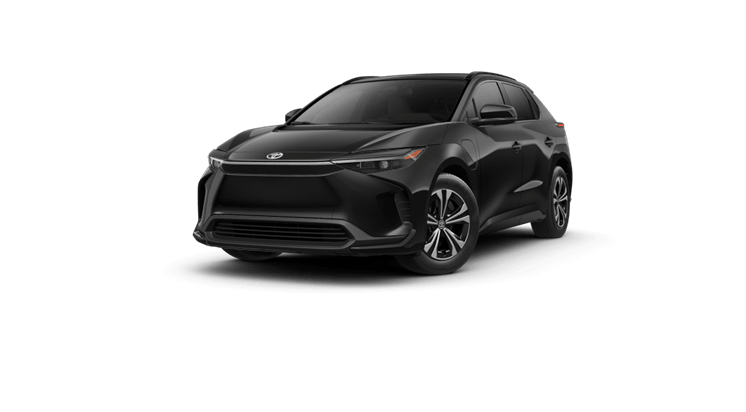How Do Electrified Vehicles Differ from Traditional Gas-Powered Cars?
As the automotive landscape rapidly evolves, one of the most significant shifts we've seen is the rise of electrified vehicles (EVs) as alternatives to traditional gas-powered cars. This change is more than just a passing trend; it's a fundamental transformation in how we think about transportation. For residents along the I-95 Corridor, including Milford, Fairfield, Westport, and surrounding areas, understanding the differences between electrified vehicles and gas-powered cars is crucial as you consider your next vehicle purchase. Learn more about the many electric car benefits you can experience when you visit Colonial Toyota.

Understanding Electrified Vehicles
Electrified vehicles come in several forms, including fully electric vehicles (EVs) and hybrid vehicles. While both differ from traditional internal combustion engine (ICE) cars, they do so in unique ways.
Fully Electric Vehicles (EVs)
EVs are powered solely by electric motors and batteries. They do not have an internal combustion engine and, therefore, do not burn gasoline or diesel fuel. Instead, they rely on electricity stored in a battery pack to power the electric motor that drives the wheels.
Key Features of EVs
Electric vehicles have many key features that have made them so popular. Learn more about the benefits of an EV:
Zero Emissions
EVs produce no tailpipe emissions, making them environmentally friendly options, especially for those in eco-conscious communities like Woodbridge and Orange.
Quiet Operation
Without an internal combustion engine, EVs operate quietly, offering a serene driving experience even in busy urban areas like New Haven and Bridgeport.
Instant Torque
EVs deliver power instantly, providing quick acceleration, which is particularly beneficial when merging onto I-95 or navigating hilly regions in Ridgefield or Trumbull.
Hybrid Vehicles
Hybrid vehicles combine a traditional internal combustion engine with an electric motor and battery. This hybrid vehicle technology allows the car to switch between or simultaneously use gasoline and electric power, optimizing fuel efficiency and reducing emissions.
Key Features of Hybrids
Hybrids are very popular because they give you the best of both worlds. Find out more about some benefits of hybrid vehicles:
Fuel Efficiency
Hybrids offer superior fuel economy compared to standard gas-powered cars. This can result in significant savings on fuel, especially during frequent commutes along the I-95 Corridor.
Reduced Emissions
While not entirely zero-emission like EVs, hybrids produce lower emissions than traditional vehicles, contributing to cleaner air in communities such as Westport and Norwalk.
Versatility
Hybrids can operate on gasoline when electric power is depleted, providing flexibility for longer drives, such as a trip from Danbury to New Haven, without worrying about charging stations.
Comparing Gas-Powered Cars and Electrified Vehicles
When deciding between a gas-powered car and an electrified vehicle, it's important to consider several factors. Below is a comprehensive gas vs. electric vehicle comparison to help you make an informed decision.
Environmental Impact
One of the most significant differences between electrified vehicles and gas-powered cars is their environmental impact. Gas-powered cars rely on fossil fuels, releasing carbon dioxide (CO2) and other pollutants into the atmosphere. These emissions contribute to air pollution and global climate change.
Electric Car Benefits
Many drivers enjoy the benefits associated with owning and driving an electric car, including the following:
No Tailpipe Emissions
EVs eliminate tailpipe emissions entirely, which is a major advantage for reducing air pollution, particularly in densely populated areas like Bridgeport and Stratford.
Reduced Carbon Footprint
Even when considering the emissions from electricity generation, EVs generally have a smaller carbon footprint than gas-powered vehicles. This is particularly true in regions like Fairfield and West Haven, where renewable energy sources are becoming more prevalent.
Cost of Ownership
The cost of owning and operating a vehicle is a significant consideration for most buyers. Here, too, electrified vehicles differ significantly from traditional gas-powered cars.
Gas-Powered Cars
Traditional gas-powered cars still come with some benefits. Learn more to determine whether the pros outweigh the cons:
Lower Initial Cost
Gas-powered vehicles typically have a lower purchase price compared to EVs and hybrids. This can be a deciding factor for budget-conscious buyers in areas like Monroe and Easton.
Higher Fuel Costs
Over time, the cost of gasoline can add up, especially if fuel prices increase. Commuters along the I-95 Corridor may find that these costs make gas-powered cars more expensive to operate in the long run.
Electrified Vehicles
Electrified vehicles may have a higher initial cost, but they also come with lower operating costs. Learn more:
Higher Initial Cost
EVs and hybrids often have a higher sticker price due to advanced technology. However, state and federal incentives, as well as lower operating costs, can offset this initial expense.
Lower Operating Costs
Electricity is generally cheaper than gasoline, and EVs have fewer moving parts, resulting in lower maintenance costs. For drivers in Norwalk and Stratford, these savings can make electrified vehicles more cost-effective over time.
Driving Range & Refueling/Recharging
Driving range and the ability to refuel or recharge quickly are critical factors when comparing electrified vehicles and gas-powered cars.
Gas-Powered Cars
Gas-powered vehicles are traditional, so drivers may know what to expect. Find out more about them and their benefits or drawbacks:
Wide Availability of Fuel
Gasoline is readily available, with gas stations scattered throughout Milford, Danbury, and other towns. This makes refueling quick and convenient, especially during long drives.
Longer Driving Range
Gas-powered cars typically have a longer range on a full tank compared to most EVs. This is advantageous for those who frequently travel long distances, such as from Ridgefield to Bridgeport.
Electrified Vehicles
EVs have different driving rangers and charging infrastructures when compared to gas-powered vehicles.
Charging Infrastructure
While the charging network is growing, it is still less widespread than gas stations. However, more charging stations are becoming available along major routes like I-95 and in towns like New Haven and West Haven.
Range Anxiety
Some drivers may experience "range anxiety," the fear of running out of battery power before reaching a charging station. However, advancements in battery technology are extending the range of EVs, making them more practical for longer trips.
Charging Time
Recharging an EV takes longer than refueling a gas-powered car. However, home charging options allow drivers to charge overnight, and fast chargers can significantly reduce charging times during travel.
Performance & Driving Experience
The performance of a vehicle is a key consideration for many drivers. Here's how electrified vehicles compare to traditional gas-powered cars in terms of driving experience.
Gas-Powered Cars
Colonial Toyota knows that many drivers still prefer gas-powered cars. Learn more about what to expect from their performance:
Engine Noise & Vibration
The sound of a gas engine and the associated vibrations are familiar to most drivers. Some enjoy this aspect of driving, while others may find it less appealing, especially during long commutes on I-95.
Smooth Refueling Process
Gas stations are ubiquitous, and the refueling process is quick and easy, taking just a few minutes.
Electrified Vehicles
If you enjoy instant torque and a quiet and smooth ride, an electric vehicle might be more your speed.
Quiet & Smooth Ride
EVs provide a smooth and quiet ride, which can be a pleasant change for those who drive frequently in busy areas like Norwalk or Bridgeport.
Instant Torque
EVs offer instant torque, delivering strong acceleration from a standstill. This can make driving more enjoyable, particularly in city traffic or on curvy roads in Ridgefield and Trumbull.
Making the Right Choice
When choosing between an electrified vehicle and a traditional gas-powered car, consider your specific needs, driving habits, and environmental impact. For residents along the I-95 Corridor and surrounding areas, understanding these differences can help you make an informed decision that aligns with your lifestyle.
If you're looking for lower emissions, reduced fuel costs, and a modern driving experience, an electrified vehicle might be the right choice for you. On the other hand, if you prefer a familiar driving experience with easy refueling and longer range, a traditional gas-powered car could be a better fit.
Ultimately, the decision comes down to what you value most in a vehicle. Whether you're in the market for an EV, a hybrid, or a traditional gas-powered car, Colonial Toyota is here to help you explore your options and find the perfect vehicle for your needs. Visit us today and take the next step toward your ideal driving experience.


